#85 (tie): 'Blue Velvet': The Reveal discusses all 100 of Sight & Sound’s Greatest Films of All Time
David Lynch's small-town noir looked like nothing else in the movie world of 1986. It's lost none of its power to shock and beguile.
On December 1st, 2022, Sight & Sound magazine published “The Greatest Films of All Time,” a poll that’s been updated every 10 years since Bicycle Thieves topped the list in 1952. It is the closest thing movies have to a canon, with each edition reflecting the evolving taste of critics and changes in the culture at large. It’s also a nice checklist of essential cinema. Over the course of many weeks, months, and (likely) years, we’re running through the ranked list in reverse order and digging into the films as deep as we can. We hope you will take this journey with us.
Blue Velvet (1986)
Dir. David Lynch
Ranking: #85 (tie)
Previous rankings: #69 (2012), #92 (2002).
Premise: College student Jeffrey Beaumont (Kyle MacLachlan) returns to his idyllic hometown of Lumberton, North Carolina to take care of his father after a stroke. On the way home from the hospital, he discovers a human ear in a vacant lot and takes it to a local police detective. Yet the mystery behind this discovery intrigues Jeffrey enough to pursue the case on his own, alongside the detective’s daughter Sandy (Laura Dern), who understands it might be connected to a lounge singer named Dorothy Valens (Isabella Rossellini). Not long after Jeffrey takes the bold step of finding his way into Dorothy’s apartment, where she discovers him peeping at her from a closet, he becomes immersed in her dangerous world, which is controlled by Frank Booth (Dennis Hopper), a sadomasochist, gas-huffing gangster. Though this amateur sleuth is in way over his head, he’s nonetheless drawn to Dorothy and the darkness at the edge of town.
Scott: Was there anything at all like Blue Velvet in 1986? Like remotely? We think of David Lynch as an iconoclast, of course, and there was surely nothing like Eraserhead when that burbled up from the primordial ooze in 1977, even though that was a more experimental period in American film. But the studio system was deep into a conservative lurch that would have made Blue Velvet inconceivable to support, and the independent movement as we could come to know it late in the ‘80s and beyond seems a bit hard to define during that period. Jim Jarmusch and the Coen brothers were just getting started—Blood Simple, the Coens’ rich, moody and darkly funny neo-noir debut is the only comparison that really sprung to mind for me—but even the De Laurentiis Entertainment Group, which released Blue Velvet, wasn’t exactly an auteur factory. Aside from Michael Mann’s Manhunter, which DEG put out a month before the Lynch film, the company’s credits included movie extensions of My Little Pony and Transformers, and the genre films Raw Deal and Maximum Overdrive. (And, it should be noted, David Lynch’s troubled adaptation of Dune.)
It’s little wonder, then, that Blue Velvet ripped through the critical community in 1986 like an IED that had been planted unexpectedly at the side of the road. While it should have been immediately obvious to anyone that they were watching a filmmaker of serious note from the start—the opening is arguably the signature sequence of his career, though it has plenty of company—it confronts your expectations in so many startling ways. Lynch gives you plenty of Old Hollywood flavor in the lushness of Angelo Badalamenti’s main theme, which sounds a bit like Bernard Herrmann; in the noir lighting scheme, with its beautiful shadows (Laura Dern’s introduction is sensational); and in the town of Lumberton itself, which feels like a wholesome ‘50s community yet isn’t actually tied to any identifiable era. But then Lynch hits you with shocking, thoroughly modern explicitness and dialogue (and dialogue-readings) that has a self-awareness and offbeat cadence that we would later come to describe as simply “Lynchian.”
Most famously, Roger Ebert wasn’t pleased. His one-star review starts thusly: “Blue Velvet contains scenes of such raw emotional energy that it's easy to understand why some critics have hailed it as a masterpiece. A film this painful and wounding has to be given special consideration. And yet those very scenes of stark sexual despair are the tipoff to what's wrong with the movie. They're so strong that they deserve to be in a movie that is sincere, honest and true.” More curiously, he goes on to defend Isabella Rossellini for the degree to which Lynch imposes humiliation and degradation upon her, which recalls a similar defense he made of Jennifer Jason Leigh in Fast Times At Ridgemont High. Keith, I think you and I have laughed before over Ebert’s choice to defend two of the most fearless actresses alive. It’s well-intentioned, but pretty off-base here.
Nevertheless, I did want to ask you about tone, because that seems to be the true underlying issue with Ebert’s (and others’) criticism of Blue Velvet. Is this movie “sincere, honest and true”? Does it need to be? I think the film is frequently hilarious in its eccentricities, but could it be just as well understood as glibly self-aware? In other words, does Lynch really mean it? There’s so much here about good and evil, the loss of innocence, sexual desire and deviance. But if you don’t believe that Lynch sees any of it as more than a stylistic exercise or genre experiment, then maybe you’re bound to be repulsed by it. I know you love this film as much as I do, Keith, but can you see where the naysayers are coming from? What defense do you have?
Keith: I think Blue Velvet, like most Lynch films, comes close to contradicting itself without ever crossing the line. It’s self-aware but also earnest. Lynch fully understands what he’s doing by setting the film in an almost parodic depiction of Americana, but the film is also “sincere, honest, and true.” For me, the heart of the movie is the moment Jeffrey asks Sandy “Why are there people like Frank? Why is there so much trouble in this world?” That could get a laugh if he didn’t seem so honestly puzzled by the existence of evil. And so could Sandy’s description of her robin dream. (The performances certainly help.) But Jeff’s also fascinated by “trouble” and his journey is one of coming to recognize the darkness within himself, maybe even reconcile it with his better nature. (Like a robin who, to survive, has to feed off the burrowing insects the film’s opening scene uses so unsettlingly, perhaps?) Jeff feels like an extension of the Lynch who delivers gee-whiz answer in interviews and used to offer “Eagle Scout, Missoula, Montana” by way of a biography but also, well, made Blue Velvet.
Was there anything like Blue Velvet in 1986? 1986 was when I was first becoming aware of arthouse movies, thanks to a theater then known as The Dayton Movies (now The Neon), which would program it all the time. I was too young to go see it, but snatched it up when I found it for $5 on VHS a bit later. I was instantly taken with it, but when I showed it to some friends, it was like I’d inflicted something on them. I don’t think this means I was hip. I think it suggests just how off-putting this movie could be at the time. (I chuckled knowingly at the awkward outing to the film depicted in The Squid and the Whale.)
And now, I love this movie, but that sequence when we first meet Frank when he visits Dorothy never gets any less disturbing. Like Jeffrey, we think we want to see the dark side of Lumberton but Frank’s profane, category-confusing rant (is he “Daddy” or “Baby”?) and the awfulness and explicitness of the rape scene is as overwhelming as it is shocking and, like Jeffrey, all we can do is watch. That the darkness doesn’t lift with Frank’s departure makes it more uncomfortable still. Dorothy didn’t invite this situation, which has taken her husband and child away from her and left her in thrall to a violent madman. But she’s also a masochist and wants Jeffrey to meet that need for her own pleasure. “He put his disease into me,” she’ll later offer as an explanation. But I don’t know that the film sees it so simply. This is, of course, deeply uncomfortable territory, but I think plunging into it despite the perils is part of what makes the movie work.
Hopper’s Frank is terrifying and electric. It’s one of those performances I wish I could see again for the first time and be surprised by it all over again. That said, I think Frank is the least interesting of the film’s central characters. He’s rotten malevolence in man form but, apart from tearing up at Roy Orbison (shades of Al Capone at the opera in The Untouchables the following year), I don’t think he’s all that complex. Everyone else here has layers upon layers. Sandy might be the quintessential good girl but she’s drawn to Lumberton’s dark side, and to Jeff. Dorothy’s the most complex of all of them. The film leaves Jeff and Sandy safely ensconced with their families enjoying a sunny afternoon. It’s not hard to see what awaits them in the future. It’s harder with Dorothy, however. She’s reunited with her son, but the reprise of her torch song ends the film on an ominous note.
I feel like we’ve delved directly into the subtext of this film and ignored the text. So let me ask you this: Does the film work as well as it does because there’s a coherent mystery at the center of it? Later Lynch films don’t have, or seem to need, as strong a narrative as this one has, yet I don’t think Blue Velvet holds together nearly as well without a mystery to follow. Am I wrong?
Scott: You’re not wrong. On top of all his other gifts, Lynch is a master storyteller, as we’d see later when he’s spin out multiple seasons of suspense and soap opera in Twin Peaks or piece together the bifurcated narratives of Lost Highway and Mulholland Dr. By the standards of those symphonic mysteries, Blue Velvet is a familiar verse-chorus-verse pop song, which I think is an essential part of its allure and its purpose. Lynch gives us enough of the familiar—a graspable, classic Hitchcockian throwback, cued to that Badalamenti score—to lead us into the deeply unfamiliar. In later work, he seemed more confident that audiences would more willingly follow him into the dark, but it’s part of Blue Velvet’s effectiveness that Jeffrey and Sandy are embarking on a Hardy Boys/Nancy Drew bit of amateur sleuthing that goes to a very strange place.
The juxtaposition between the naivety of our heroes and the seductive dangers of Lumberton’s underworld is not only striking but frequently hilarious. I’m thinking of exchanges like Sandy musing, “I can’t figure out if you’re a detective or a pervert” and Jeffrey answering, “Well, that’s for me to know and for you to find out.” Or a sequence where worlds collide as Sandy’s jock boyfriend and his buddies prepare to beat Jeffrey up for stealing his girl, only to scatter at the sight of Dorothy emerging naked across the lawn. Obviously that’s a moment of extreme vulnerability and trauma, based on what we know about Dorothy’s life, but there’s something funny about the boys realizing, “Hey, this is way too much for us to handle.” It’s like Dorothy had wandered onto the wrong set.
To dig into these characters a bit more, I’m fascinated by the way Dorothy draws Jeffrey’s interest where Sandy cannot, even in moments when Sandy plainly notices it, like the scene where they watch Dorothy perform at the club. That dynamic reminds me of Jimmy Stewart’s character in Vertigo, who scarcely notices the attention given to him by Barbara Bel Geddes’ Midge, because he’s so mesmerized by Kim Novak’s more mysterious and sexually arresting Madeleine. Though Sandy is aroused by all the excitement herself—keep in mind, the movie goes nowhere if she doesn’t emerge from the shadows to give Jeffrey information she overheard from her father—seems to be banking on Jeffrey returning to her after his walkabout. It’s not a bad bet, either: You don’t imagine a guy who does the “chicken walk” taking up permanent residence on the dark side.
And yet, Jeffrey experiences quite a coming of age. He’s a detective and a pervert when he enters Dorothy’s apartment after her performance and slips into the closet. (The part where Jeffrey misses Sandy’s four horn honks because he’s using the bathroom is funny and nerve-jangling at the same time. Heineken!) Lynch reminds us, as Hitchcock often did, of how voyeurism is a fundamental thrill built into watching movies, where we get to sit in the dark and watch people without them knowing. At the club and then the apartment, Jeffrey gets the fullest possible look at Dorothy and the dangerous, exotic and bracingly adult world she represents. When the divide between them is suddenly breached and he’s brought out into the light, he’s exposed even before she demands that he take off his clothes.
Do you have any answers for the masochism that underscores the film’s most disturbing scenes? I think we can guess that Dorothy is driven to feel she needs to be hit, between her degradation at Frank’s hands and her helplessness and self-loathing over what has happened to her husband and son. But how to explain Jeffrey? He’s surprised (and we are too) that he can repeat some of the behavior that he’s witnessed from behind the closet door. Has “the disease,” as Dorothy calls it, been put in him, too? Is there some darkness at the heart of men that’s being highlighted by this movie?
And before we wrap up the conversation, I’d like to hear some of your favorite moments from Blue Velvet, because there sure are a wealth of lines and scenes and supporting turns to choose from here.
Keith: The idea of those impulses working like a disease lines up pretty well with “Part 8,” a.k.a. “Gotta Light?,” the eighth episode of Twin Peaks: The Return and one of the best moments in Lynch’s filmography. There, thanks to the malevolent Woodsmen, evil spreads like an infection. But, like I suggest above, I don’t think that’s quite what’s going on here. Blue Velvet is in part about characters learning to live with the darkness around and within them. Jeffrey is a voyeur and Dorothy brings out a sadistic impulse he didn’t know he had, and probably wishes he didn’t. Blue Velvet never suggests that Dorothy wants Frank’s abuse but — and I’m treading delicately here — it definitely indicates she takes some satisfaction from masochistic experiences and will channel that impulse into situations she can control, as with Jeffrey.
On the one hand, you could see this as a film that posits men are essentially masochistic and women are naturally sadistic but, again, I think it’s more complex than that. A writer named Laura LeMoon wrote a piece a couple of years ago about what this element means to her as a survivor of sexual trauma and a member of the kink community that explores this much better and with more expertise than I could. I think the ambiguity and complexity of Blue Velvet’s depiction of abuse and masochism helps explain why it’s never become radioactive like, say, Stray Dogs.
Favorite moments? I love the way Jeffrey tells Sandy, “It went OK” the night after his outing as a detective/pervert. Seldom have three words so inadequately captured the complexity of a situation. But the big moment we haven’t talked about is the visit to Ben’s and Dean Stockwell’s “In Dreams” lip-synch routine. Even before that moment, I’m in awe of the quiet menace and, to use Frank’s word, “suaveness” Stockwell brings to the character. Witness the way he widens his eyes unpredictably at unexpected moments. Look at that Cheshire Cat smile. Who is this guy? We never learn, making his mid-movie appearance all the more remarkable. How about you?
Scott: That Stockwell lip-synch is a standout for sure, and I love how his “suave” demeanor contrasts with Hopper’s Frank, who’s always running hot. When we first meet Stockwell—in a plainly adorned, oddball-filled room that evoked early John Waters to me—Frank is extremely focused on getting his case of Pabst Blue Ribbon in glasses as soon as possible. The way Stockwell’s character manages this situation, with a drugged-out calm that muffles the potential violence, makes him like the human equivalent of the blue velvet that Frank occasionally chews on like a pacifier. All the while, we’re hyper-aware of Jeffrey’s mortal terror in witnessing the scene and Dorothy’s desperation to see her son in the next room, concerned over how she might find him.
As for other favorite moments, I like George Dickerson’s performance as Sandy’s father, Det. Williams, whose preternatural cool results in a host of deadpan line-readings, starting with him peering into the paper bag Jeffrey has brought him and saying, “That’s a human ear, all right.” (A tip of the hat to Lynch transitioning from the severed ear to a pair of scissors snipping the police tape at the crime scene.) I also like how much Lynch leans into Lumberton as a logging town, which would of course gain extra resonance later with Twin Peaks, but here gives us audio from the local radio station, WOOD, which gives the time at the sound of a falling tree. Lynch seems to like the wholesomeness of this particular industry, but perhaps there’s also something about the forest as a site of verdancy and mystery, and the discoveries that can be made by those who chop their way into it.
Blue Velvet would be the first time Lynch would work with Laura Dern, who he’d cast again four years later in Wild At Heart and many years after that in Inland Empire. We’ve focused a lot, properly, on how much this amateur detective project reveals about Jeffrey and his hidden desires, but Dern’s Sandy is equally compelling. She’s excited to be part of this adventure, too, and her motives are cloudy enough for Jeffrey to call her “a mystery,” which is something he likes. Her compassion is a critical aspect of the film and what ultimately beckons Jeffrey and the town back into the Robin-filled light of day. Sandy’s reaction to a naked Dorothy clinging to Jeffrey, making painfully obvious the intimacy of their relationship and the depth of his deception, is so complex, because Dern projects her hurt over Jeffrey’s betrayal but also a true concern for this vulnerable woman who’s landed in her living room. No one cries like Laura Dern.
Next: Spirit of the Beehive (1973)
#95 (tie): Get Out
#95 (tie): The General
#95 (tie): Black Girl
#95 (tie): Tropical Malady
#95 (tie): Once Upon a Time in the West
#95 (tie): A Man Escaped
#90 (tie): Yi Yi
#90 (tie): Ugetsu
#90 (tie): The Earrings of Madame De…
#90 (tie): Parasite
#90 (tie): The Leopard
#88 (tie) The Shining
#88 (tie) Chungking Express
#85 (tie) Pierrot le Fou




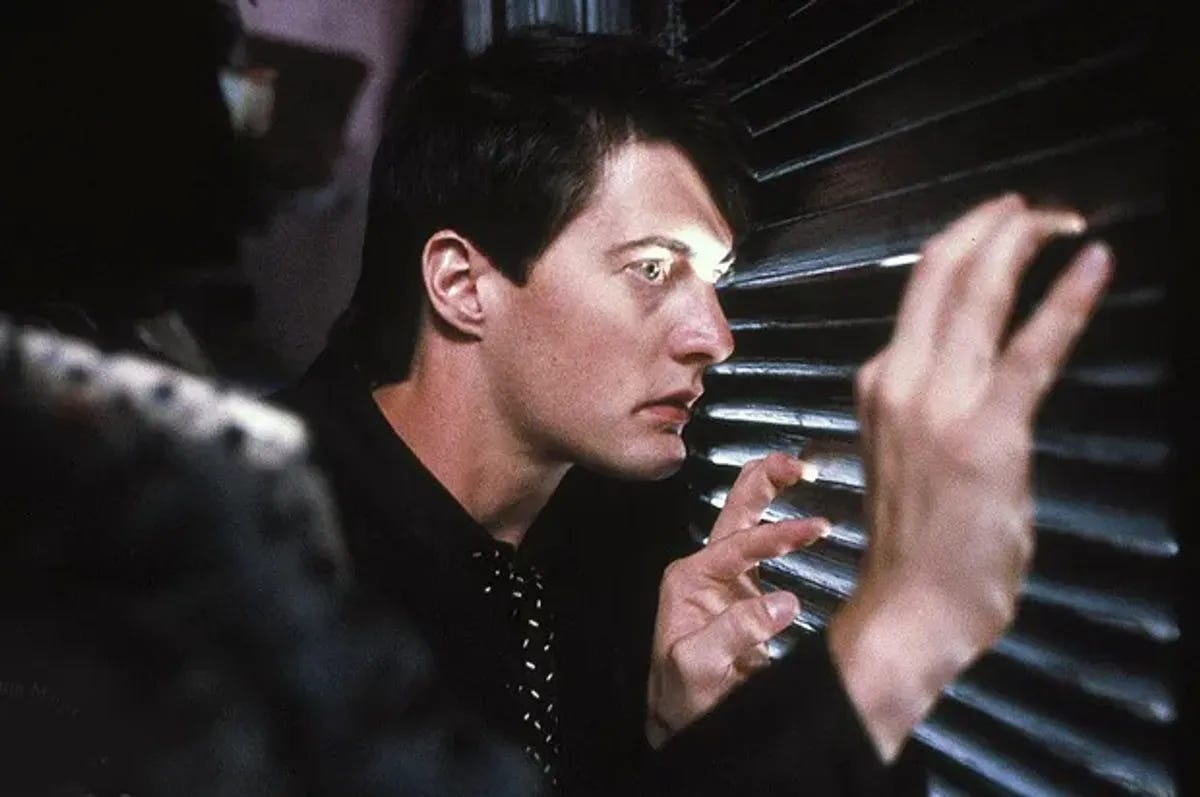
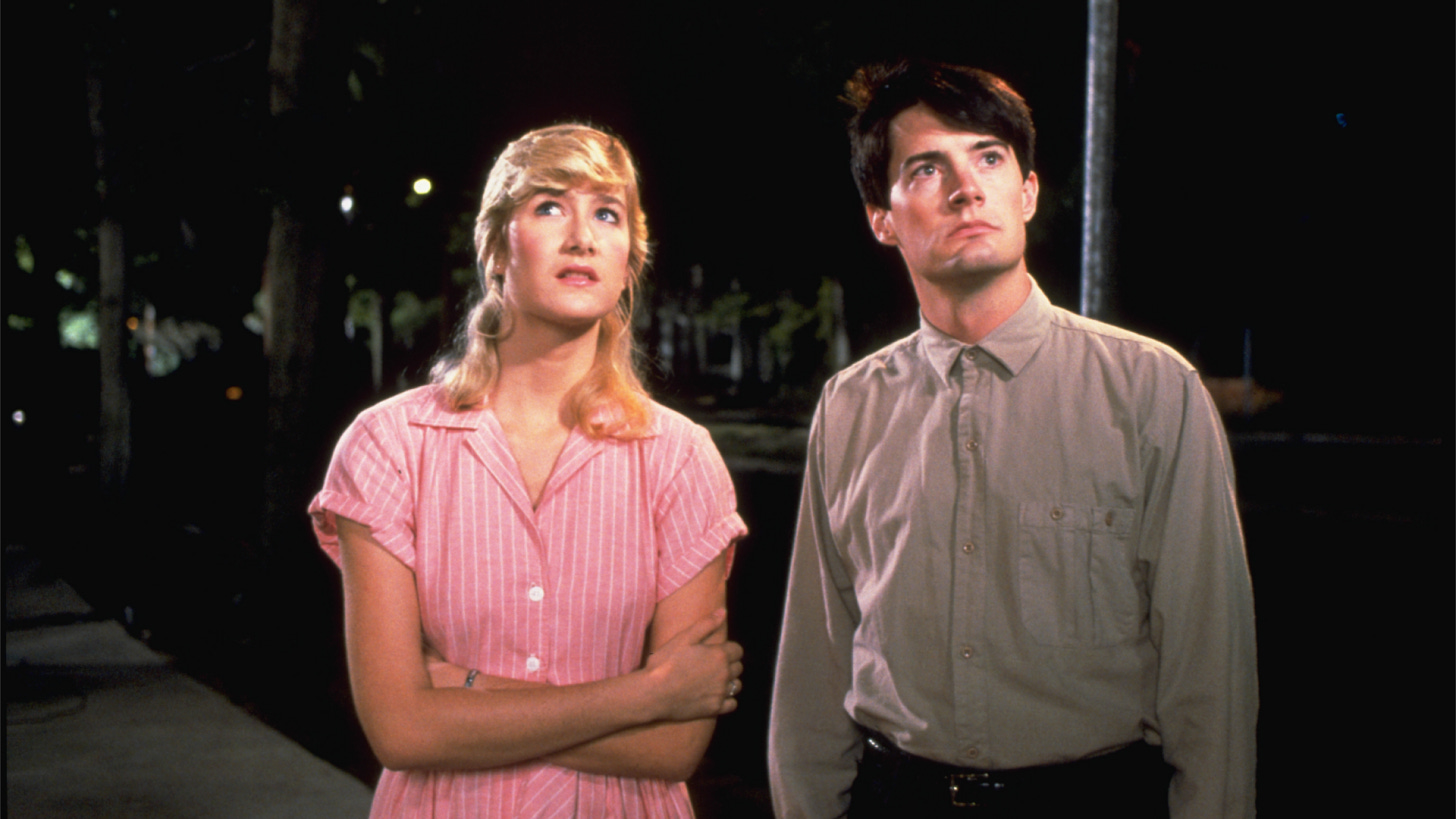
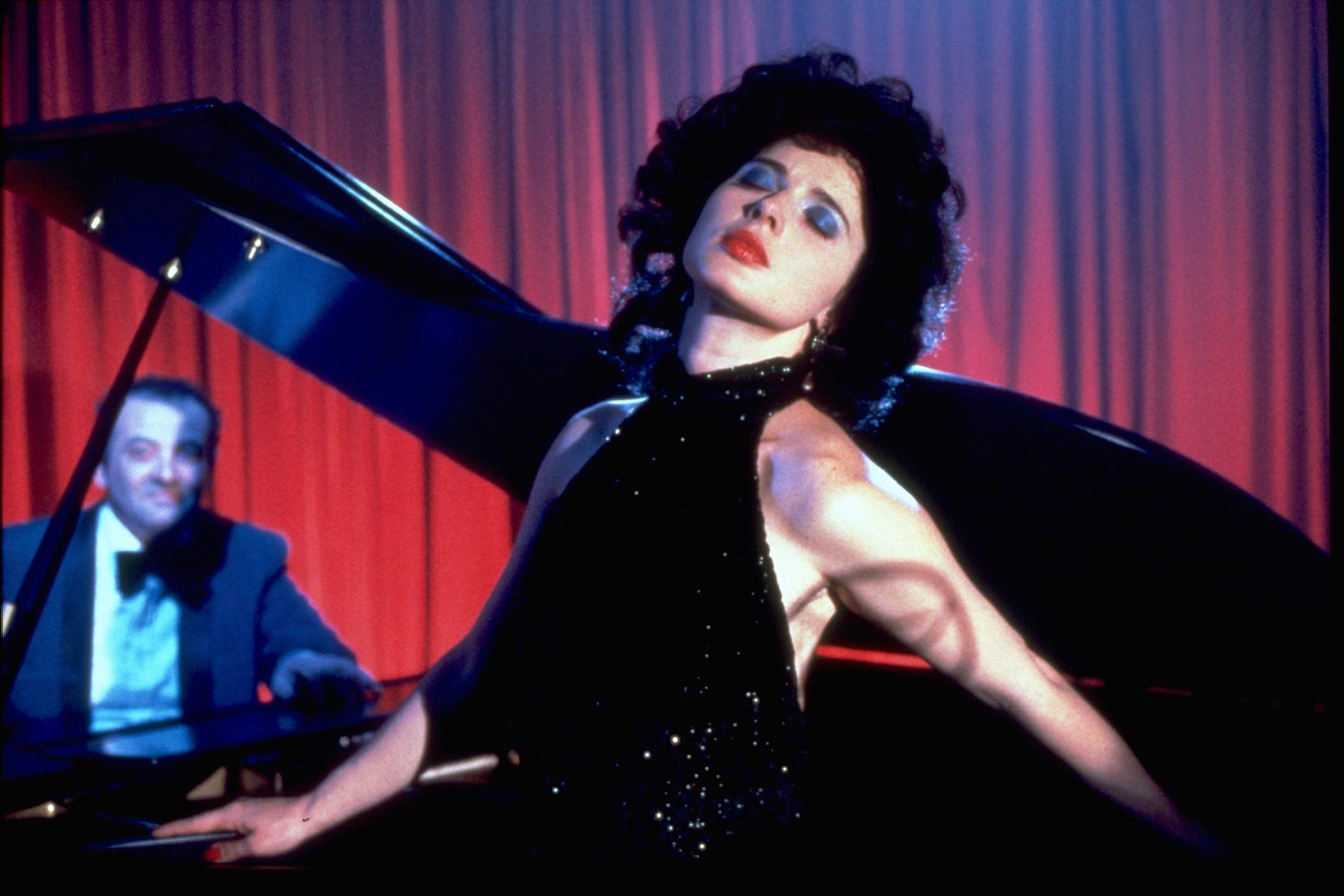
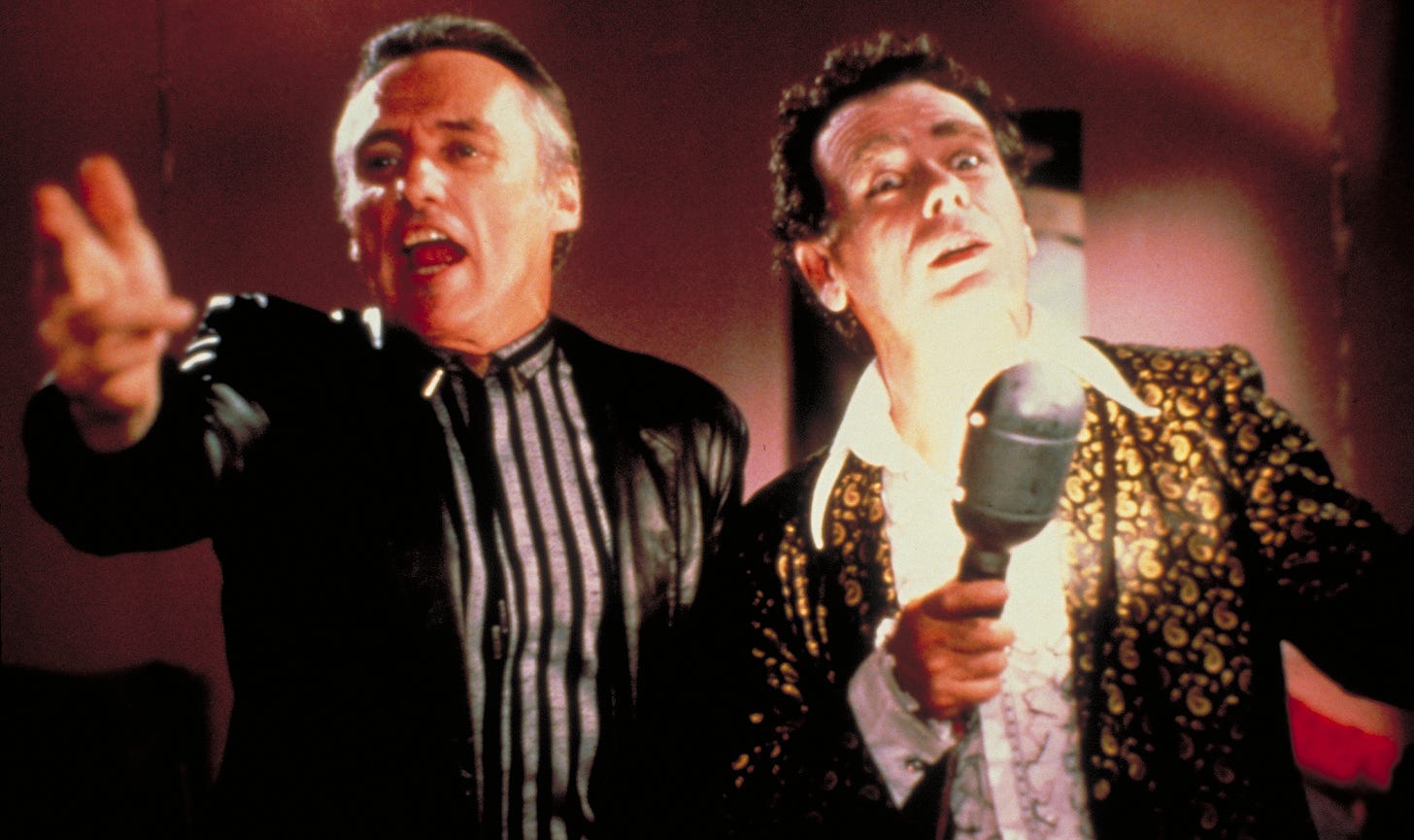
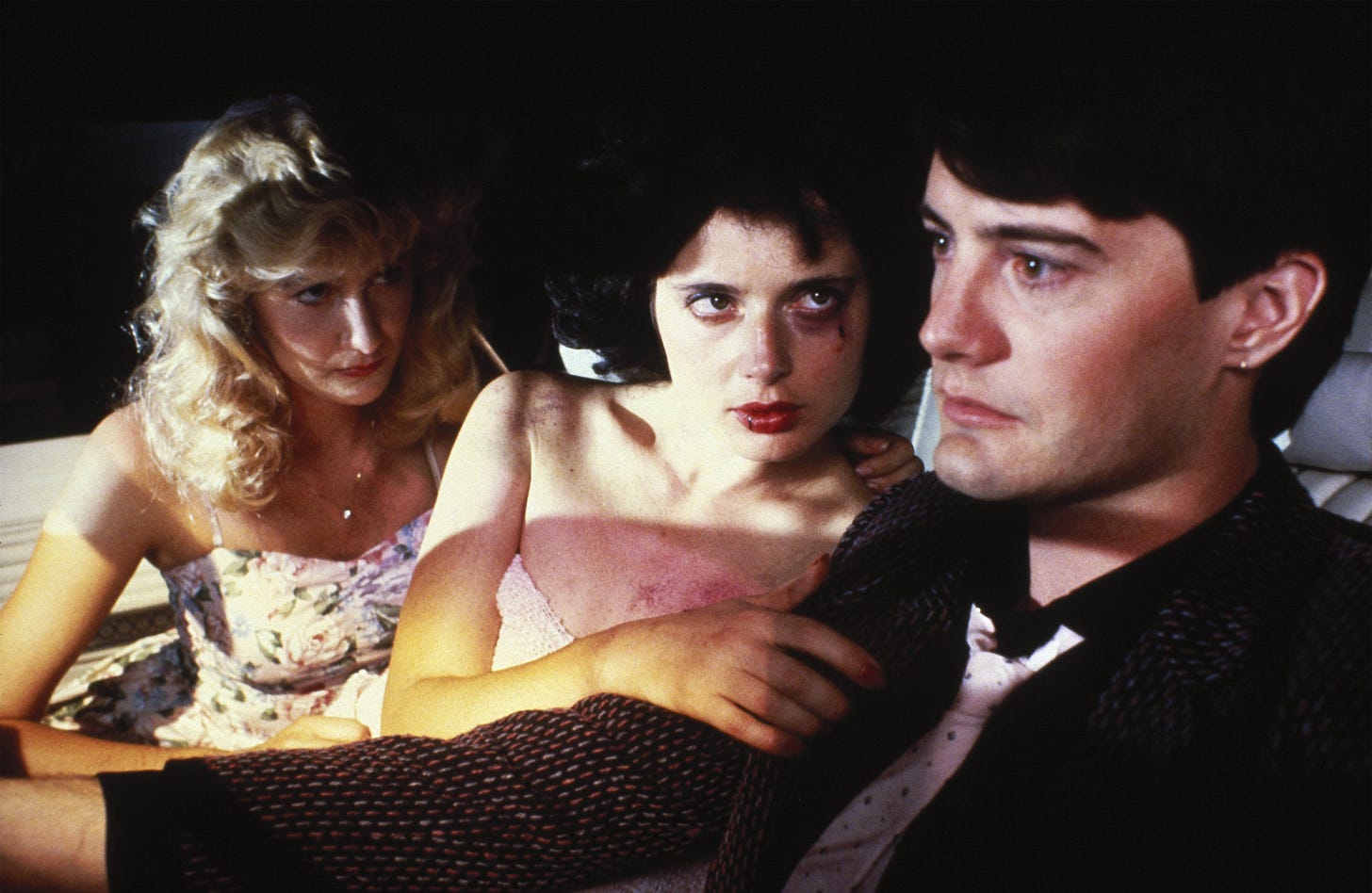
My Instagram bio is "Waiting for the robins to come", has been since I got to see this in a theater...I think in 2021. I'm at six of ten Lynch films in a theater, I'll hopefully be seeing Dune on Monday to bring that to seven. Weird to me that Eraserhead and Elephant Man, two of his higher profile projects, are proving so elusive, but there's probably some distribution hangup I'm not aware.
Great discussion. I touched on the ways Lynch exposes Jeffrey (and, by extension, Kyle MacLachlan) a few years back: https://crookedmarquee.com/scene-of-an-anatomy-kyle-maclachlan-in-blue-velvet/